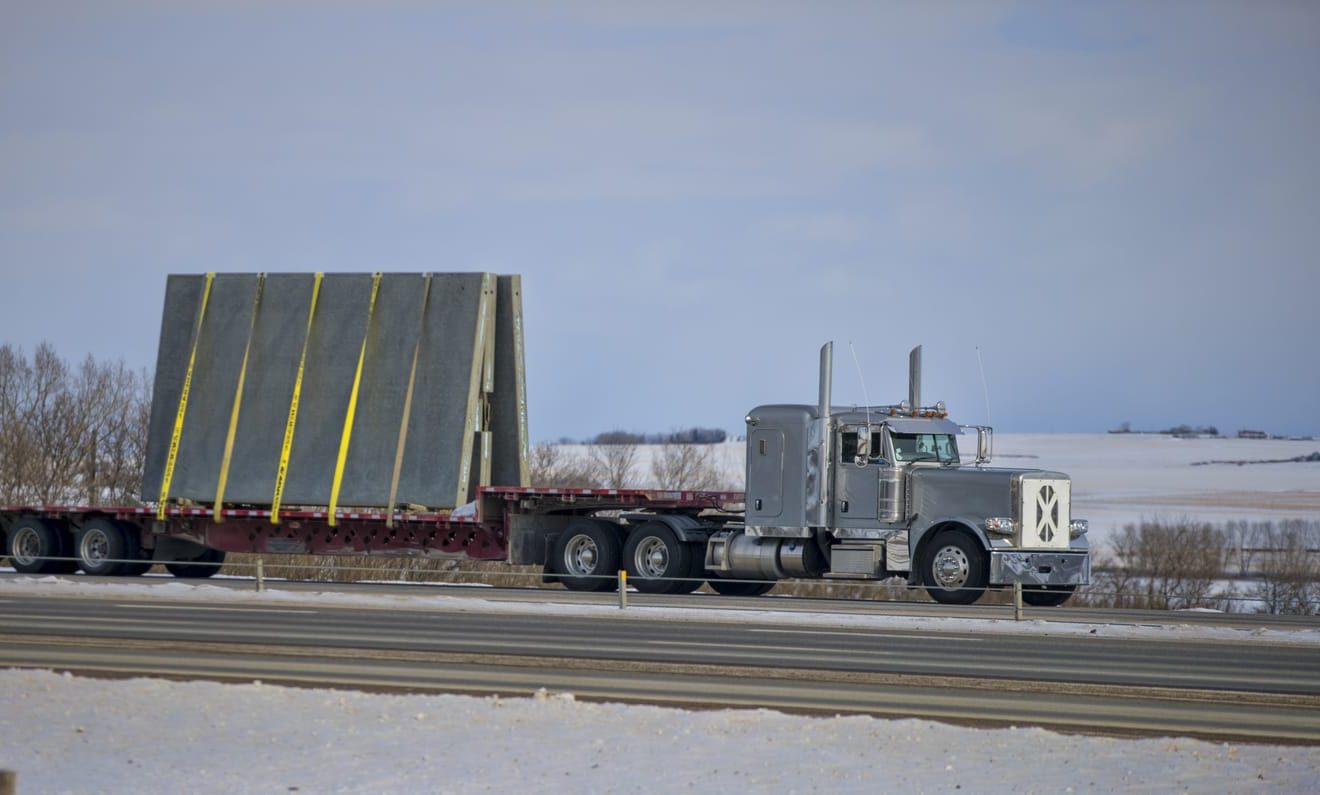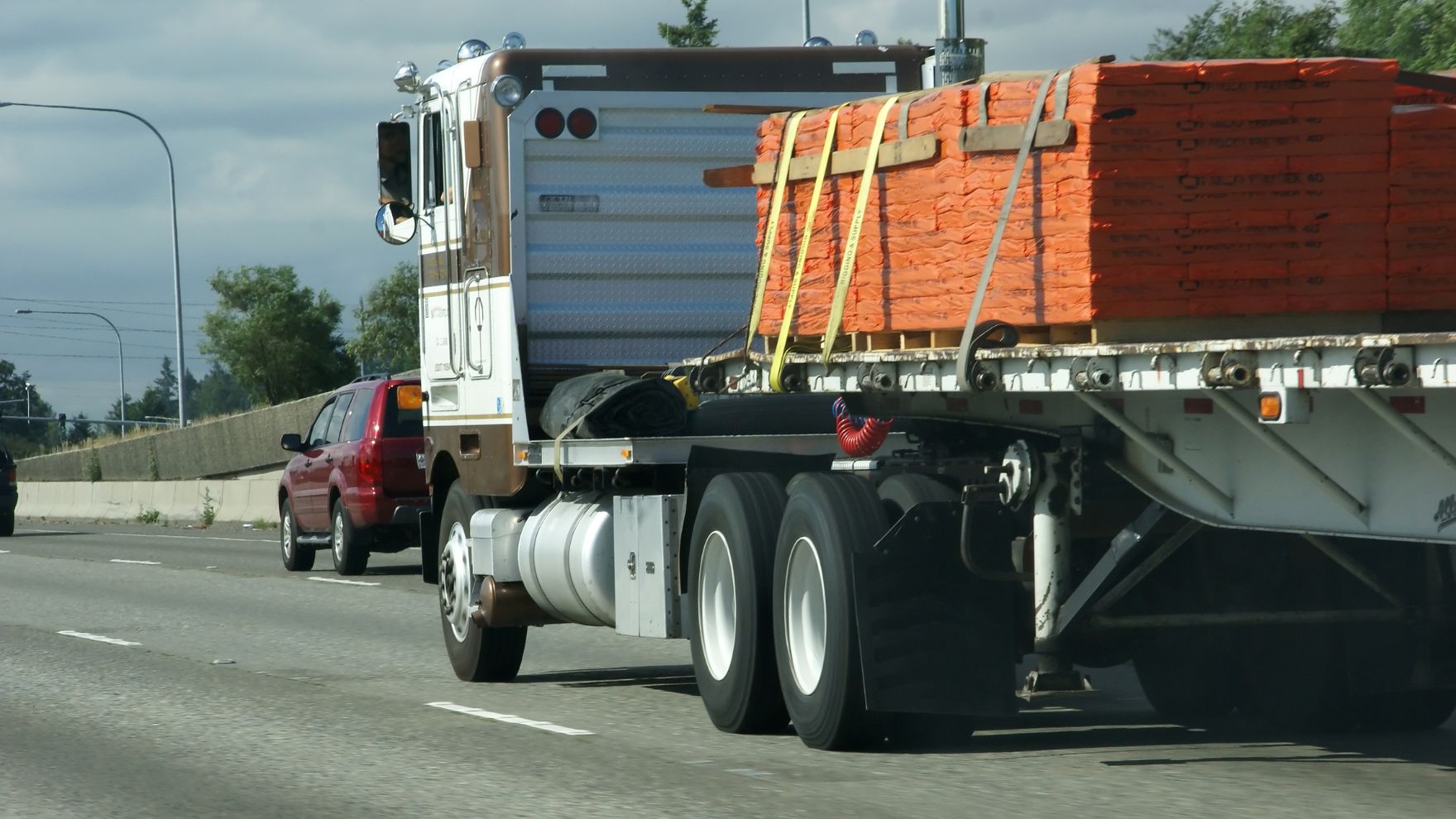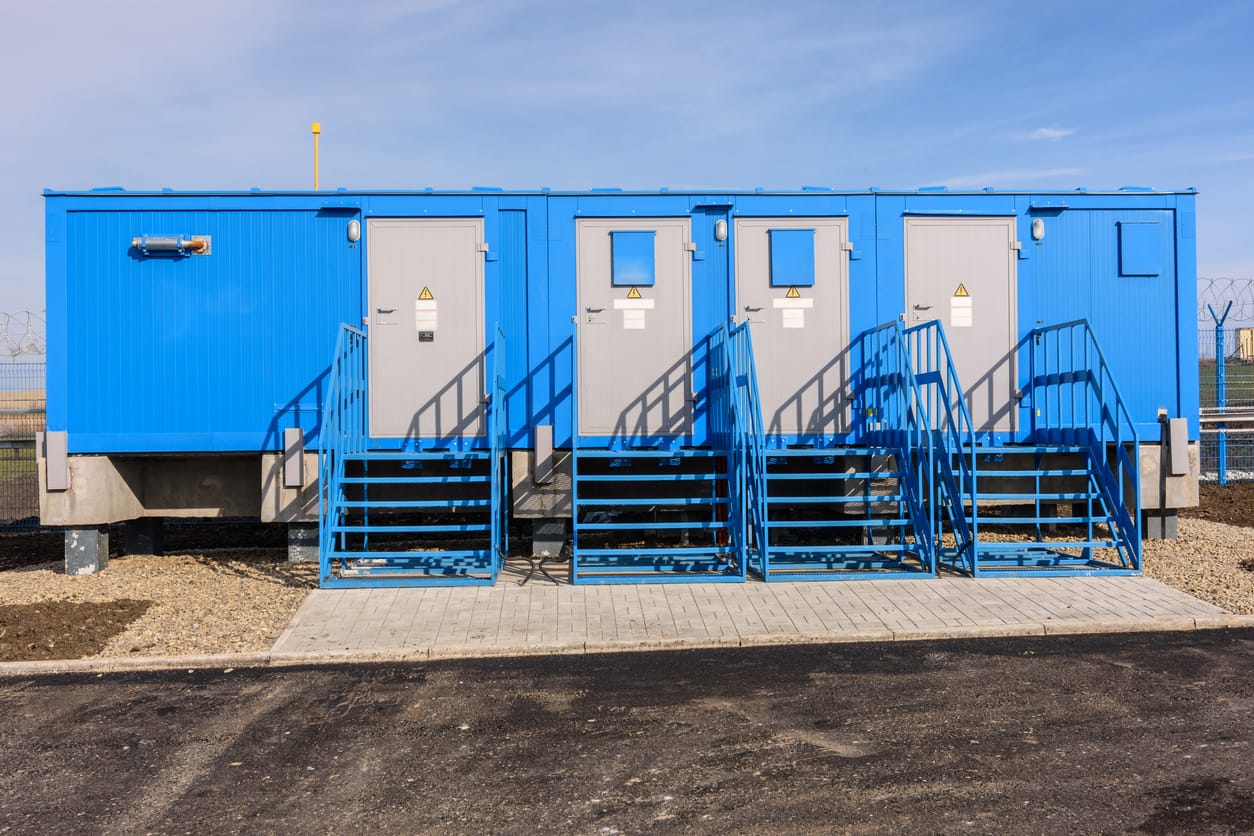Shipping bricks and concrete blocks is different from shipping other products because of their weight, size, and fragility. Unlike other goods, these materials require specialized handling and packaging to ensure they reach their destination safely and without damage.
That’s where Ship A Car comes in, offering a solution for those looking to ship bricks and concrete blocks with ease and convenience. With years of experience in the industry, SAC has the knowledge and expertise to handle all types of brick and concrete block shipments, ensuring that they arrive at their destination in pristine condition.
We’ll explore the unique challenges involved in shipping bricks and concrete blocks, the importance of proper packaging and labelling, and how the SAC team can help you with all your brick and concrete block shipping needs. Whether you’re a contractor, construction worker, or homeowner, sit back and let us guide you through the process of shipping your bricks and concrete blocks safely and efficiently.
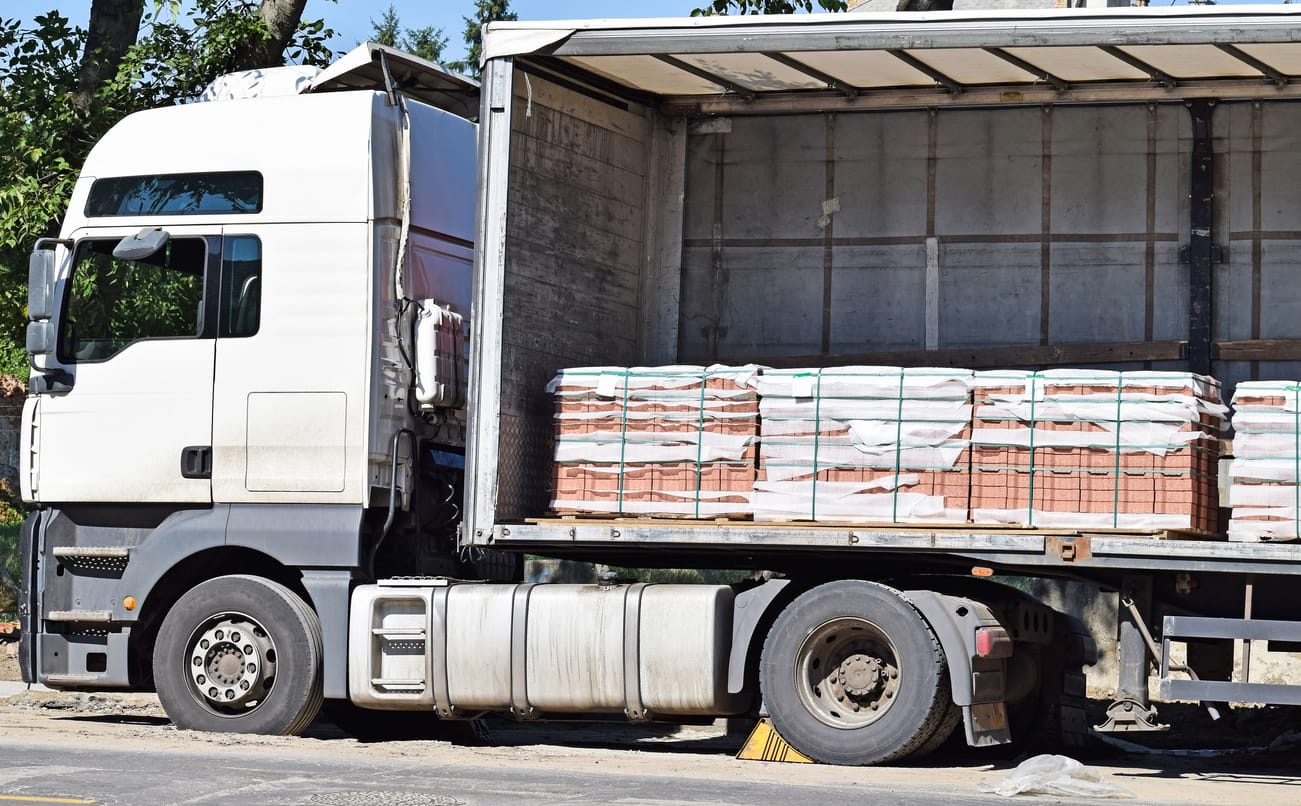
Brick transportation services typically work by using specialized equipment designed to move large quantities of bricks. This equipment may include trucks with flatbed trailers, cranes, and forklifts. The transportation provider will work with you to determine the best method for moving your bricks based on the quantity and destination.
When it comes to shipping bricks and concrete blocks, several factors need to be considered to ensure a successful and safe delivery. In this article, we’ll explore the most important factors that must be taken into account when shipping these materials.
- Types of Bricks and Concrete Blocks: There are different types of bricks and concrete blocks, and each type requires a specific approach when it comes to packaging, handling, and transportation. For example, common types of bricks include solid bricks, hollow bricks, and fire bricks. Concrete blocks, on the other hand, can be made in various shapes and sizes, including cinder blocks, breeze blocks, and decorative blocks. The type of brick or concrete block being shipped will affect how it should be packaged, secured, and transported.
- Weight and Dimensions of Bricks and Concrete Blocks: One of the most critical factors to consider when shipping bricks and concrete blocks is their weight and dimensions. These materials are heavy and bulky, which means that they require special handling and packaging to prevent damage during transportation. It’s important to know the exact weight and dimensions of the bricks and concrete blocks being shipped to ensure that the proper equipment and packaging materials are used.
- Packaging and Securing the Bricks and Concrete Blocks: Proper packaging and securing of bricks and concrete blocks are crucial to ensure that they arrive at their destination safely and without damage. The materials should be packed in sturdy and durable packaging materials that can withstand the weight and pressure of other cargo during transportation. Additionally, the bricks and concrete blocks should be secured in the packaging materials to prevent them from shifting or moving around during transit.
- Shipping Regulations for Bricks and Concrete Blocks: Another factor to consider when shipping bricks and concrete blocks is the shipping regulations that govern their transportation. Depending on the type of material being shipped, there may be specific regulations that must be followed to ensure compliance with safety standards and other legal requirements.
For example, some types of bricks and concrete blocks may require special labelling, handling, or permits to transport. So, shipping bricks and concrete blocks require careful consideration of several factors, including the type of material being shipped, its weight and dimensions, packaging and securing, and shipping regulations. By taking these factors into account, you can ensure that your bricks and concrete blocks arrive at their destination safely and without damage.
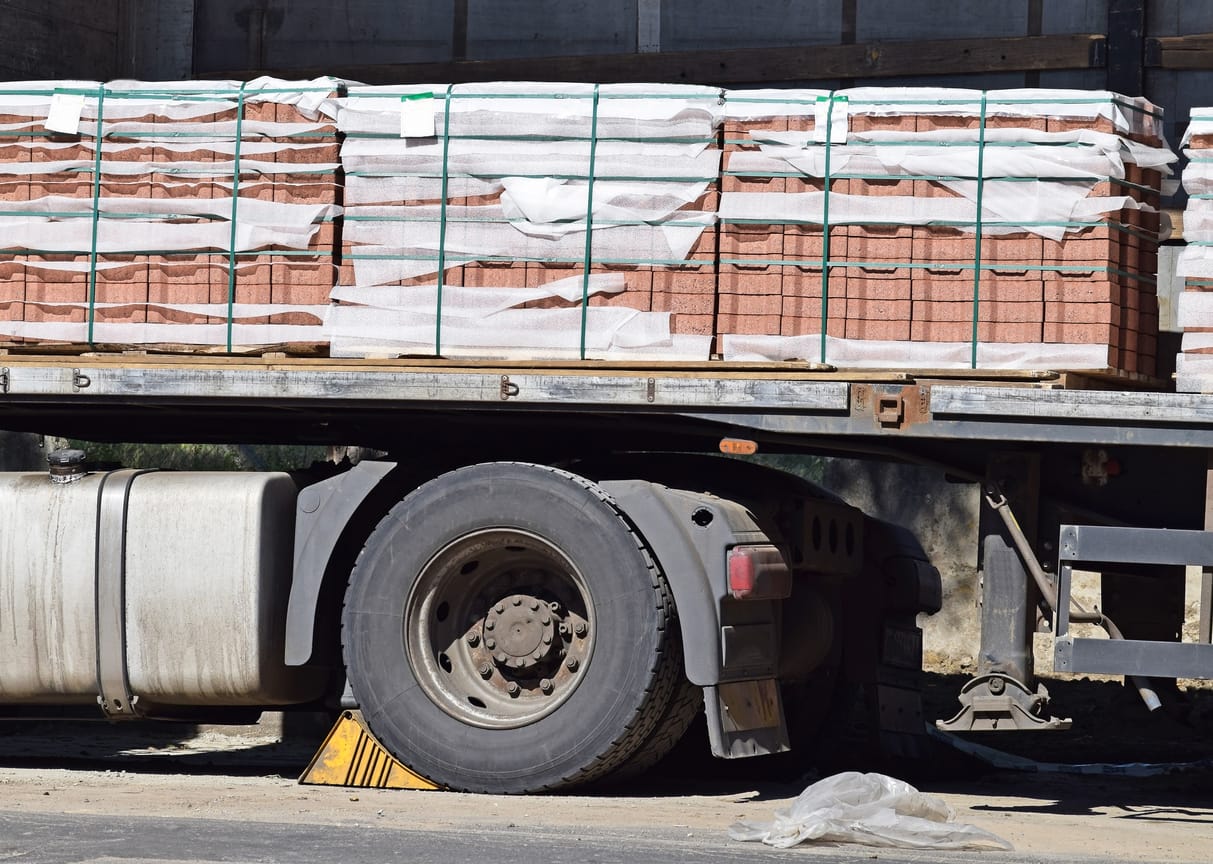
- Identify the Shipment Needs: The first step is to determine the size and weight of the shipment, as well as the pickup and delivery locations. This information will help you select the right shipping company and ensure that the necessary permits and documents are obtained.
- Research and Select a Shipping Company: Do your research and select a reputable shipping company with experience in transporting bricks and concrete blocks. Look for a company with a track record of on-time deliveries and good customer reviews.
- Obtain Necessary Permits and Documents: Depending on the size and weight of the shipment, you may need to obtain permits and other documents from local or state authorities. This may include weight permits, oversized load permits, and shipping manifests.
- Prepare the Bricks and Concrete Blocks for Shipping: Before shipping, make sure that the bricks and concrete blocks are properly packaged and secured to prevent damage during transport. Use sturdy crates or pallets to stack and bundle the materials together.
- Load the Bricks and Concrete Blocks onto the Truck: Once the shipment is prepared, it’s time to load the materials onto the truck. Use proper lifting techniques and equipment to avoid injury, and ensure that the materials are properly secured to prevent shifting during transport
- Open-Air Trailer: An open-air trailer is a flatbed trailer with no roof or sides, allowing for easy loading and unloading of materials. While this method is often the most cost-effective, it also leaves the materials exposed to the elements and potential damage during transport.
- Enclosed Trailer: An enclosed trailer is a covered trailer that protects from the elements and other potential hazards during transport. This method is often preferred for shipping valuable or fragile materials, although it may be more expensive than open-air trailers.
- Flatbed Trailer: A flatbed trailer is a versatile option for shipping bricks and concrete blocks, allowing for easy loading and unloading of materials with a crane or forklift. This method is often used for oversized or heavy shipments that cannot be transported on a standard trailer.
- Intermodal Container: An intermodal container is a shipping container designed for use in multiple modes of transport, including trucks, trains, and ships. This method provides a high level of security and protection for the materials during transport, although it may be more expensive than other options.
When selecting a shipping method, consider factors such as the size and weight of the materials, the distance of the shipment, and the level of protection needed.

You’ve spent weeks preparing your bricks and concrete blocks for shipment. You’ve carefully packaged them and secured them onto the truck, but there’s one more important decision to make: choosing the right shipping company. Here are some key factors to consider when selecting a shipping company:
- Reputation: A shipping company’s reputation is one of the most important factors to consider. Look for a company with a proven track record of on-time deliveries and good customer reviews. Ask for references or read online reviews to get a sense of the company’s reliability.
- Insurance: It’s important to choose a shipping company that offers adequate insurance coverage for your shipment. This will protect you in the event of damage or loss during transport. Ask about the company’s insurance policies and make sure they have sufficient coverage for your materials.
- Customer Service: The level of customer service provided by a shipping company can make all the difference in your experience. Look for a company that is responsive and easy to communicate with, and that provides regular updates on the status of your shipment. Good customer service can help ensure a smooth and stress-free shipping process.
- Pricing: While cost is certainly a consideration when choosing a shipping company, it should not be the only factor. Look for a company that offers competitive pricing while also providing the level of service and reliability you need.
You’ve done your research, selected a shipping company, and prepared your bricks and concrete blocks for transport. Now, it’s time to ensure a successful shipping experience. Here are some tips to keep in mind:
- Communication with the shipping company: Communication is key to a successful shipping experience. Make sure you provide the shipping company with all necessary information about your shipment, including the size and weight of the materials, pickup and delivery locations, and any special handling requirements. Stay in touch with the company throughout the shipping process to ensure everything is on track.
- Proper packaging and securing of bricks and concrete blocks: Proper packaging and securing of your bricks and concrete blocks is essential to prevent damage during transport. Use sturdy containers or pallets, wrap the materials securely, and use appropriate strapping or tie-downs to prevent shifting or movement during transport.
- Preparing for delays and unexpected issues: Despite your best efforts, delays and unexpected issues can arise during shipping. Be prepared for potential delays due to weather, traffic, or other factors, and build in extra time for your shipment to arrive. Stay in communication with the shipping company to stay informed of any delays or issues that arise.
- Following shipping regulations: There are regulations and requirements for shipping bricks and concrete blocks, such as weight limits and hazardous materials restrictions. Make sure you are aware of these regulations and follow them to avoid any legal or safety issues.
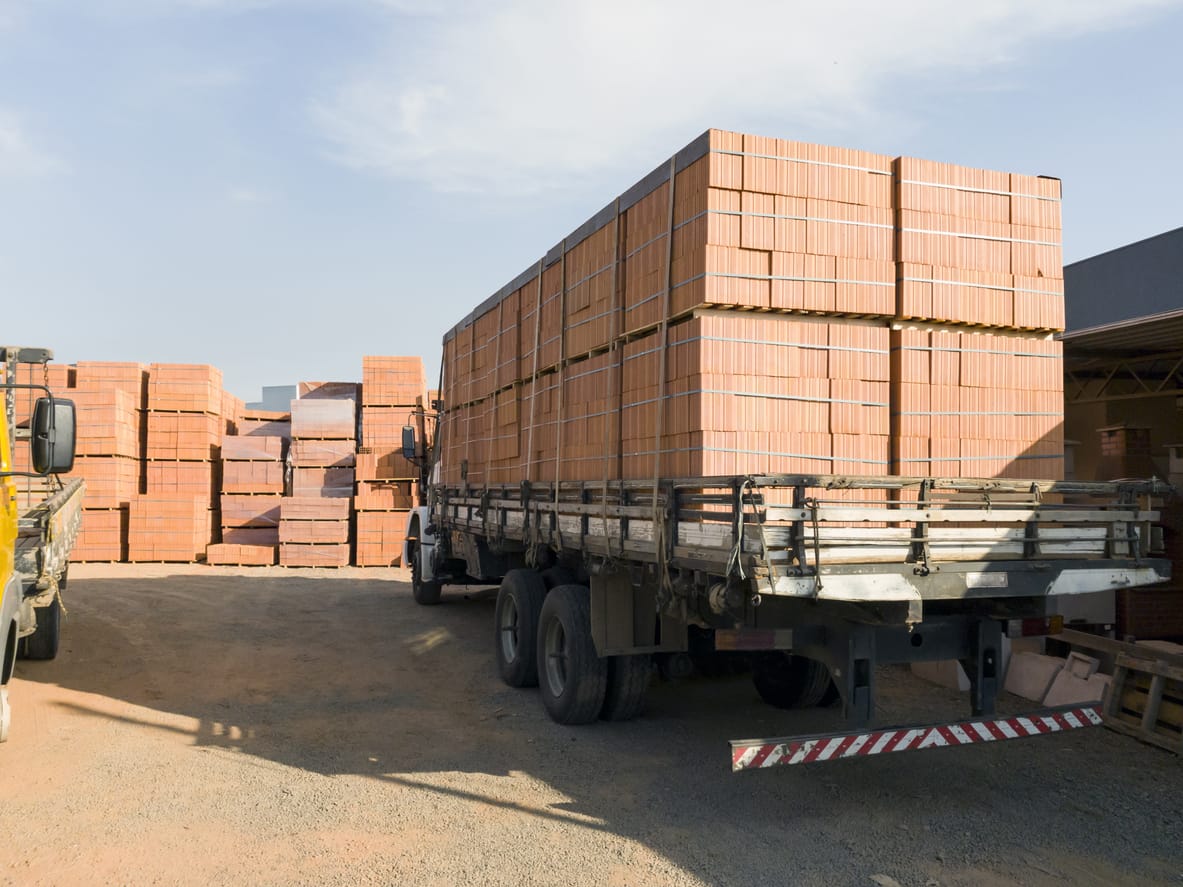
Here are some of the most common problems to watch out for:
- Damaged or broken products: Due to their weight and fragile nature, bricks and concrete blocks are particularly prone to damage during transport. Improper packaging or securing can result in broken or damaged materials, which can be costly to replace.
- Delayed delivery: Shipping delays can occur due to a variety of factors, including weather, traffic, or other unexpected issues. While some delays may be out of your control, others can be avoided by working with a reliable shipping company and properly preparing your materials for transport.
- Lost or stolen products: Unfortunately, lost or stolen shipments can occur, particularly if the materials are not properly secured or tracked during transport. Make sure you work with a reputable shipping company that has a strong track record of safely delivering materials to their destination.
- Shipping regulation violations: There are strict regulations governing the transport of bricks and concrete blocks, such as weight limits and hazardous materials restrictions. Violating these regulations can result in costly fines and legal issues.
To avoid these common problems, it’s important to work with a reputable shipping company that has experience transporting heavy, fragile materials like bricks and concrete blocks.
Properly packaging and securing your materials can also help prevent damage during transport while staying up to date on shipping regulations can ensure legal compliance. By taking these steps, you can help ensure a smooth and successful shipping experience.
- Comprehensive shipping services: Ship A Car offers a wide range of shipping services to meet your specific needs. From open-air trailers to enclosed trailers and intermodal containers, shipacarinc.com can help you select the best shipping method for your materials.
- Expertise in heavy materials transport: With years of experience in shipping heavy, bulky materials, Ship A Car (SAC Transport) has the knowledge and expertise to ensure that your bricks and concrete blocks arrive at their destination safely and on time.
- Compliance with shipping regulations: SAC and their large network of carriers all stay up to date on all shipping regulations, ensuring that your materials are transported in compliance with all applicable laws and regulations.
- Affordable pricing: Ship A Car offers competitive pricing for all of its shipping services, ensuring that you get the best value for your shipping budget.
Whether you need to transport a small number of bricks or a large number of concrete blocks, Ship A Car, Inc. has the expertise and services you need to ensure a successful shipping experience. Contact them today to learn more about how they can help with your specific brick and concrete block shipping needs.
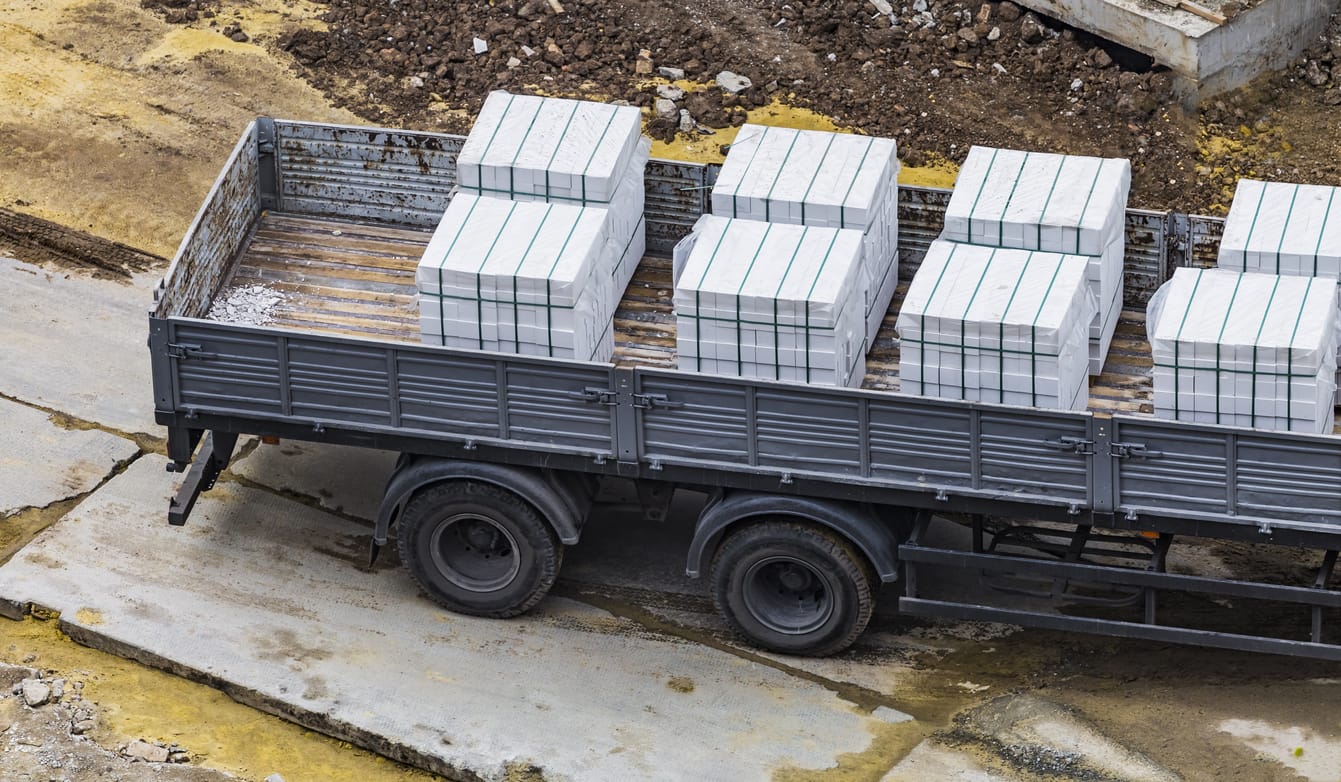
When it comes to shipping bricks and concrete blocks, using a trusted and experienced shipping company like Ship A Car can provide numerous benefits that make the process smoother and more worry-free. Here are just a few of the benefits you can enjoy by for your brick and concrete block shipping needs:
- Convenience: Shipping heavy, bulky materials like bricks and concrete blocks can be a hassle, especially if you’re doing it on your own. Ship A Car, Inc. takes care of all the logistics for you, from selecting the right shipping method to arranging for delivery, so you can focus on other important aspects of your business.
- Safety and security: Bricks and concrete blocks can be fragile and prone to damage during transit. Ship A Car has the expertise and equipment needed to package and secure your materials properly, ensuring that they arrive at their destination in the same condition as when they left.
- Time-saving: Shipping bricks and concrete blocks on your own can be a time-consuming process. With SAC, you can save time by letting them handle all the details for you. This allows you to focus on other areas of your business or personal life while still getting your materials where they need to go.
- Cost-effectiveness: Shipping heavy materials can be expensive, especially if you’re not familiar with the process. Ship A Car has the experience and expertise needed to find the most cost-effective shipping solution for your specific needs, saving you money and helping you stay within your budget.
By choosing Ship A Car, Inc. (SAC) for your brick-and-concrete block shipping needs, you can enjoy these and many other benefits that make the shipping process smoother, more efficient, and less stressful. So why wait? Contact us today to learn more about how they can help you with your next shipment.

It is essential to understand the challenges and importance of proper shipping of bricks and concrete blocks. Without proper planning and execution, shipping these heavy and delicate materials can lead to various problems such as damage, delays, and even legal violations.
Fortunately, Ship A Car, Inc. offers a wide range of convenient and cost-effective shipping services to meet specific brick and concrete block shipping needs. From packaging and securing to selecting the right shipping method, their team of experts can ensure the safety and security of your valuable materials.
Finally, by partnering with Ship A Car, you can rest assured that your bricks and concrete blocks will be shipped safely and efficiently, allowing you to focus on other important aspects of your business. So, if you’re looking for a reliable and experienced partner for your brick and concrete block shipping needs, ShipaCarInc.com is the way to go.
Question: What is the best way to package and secure bricks and concrete blocks for shipping?
Answer: The best way to package and secure bricks and concrete blocks for shipping is to wrap them in a sturdy material such as shrink wrap or heavy-duty plastic, and then use straps or bands to secure them onto a pallet.
Question: Can I ship bricks and concrete blocks internationally?
Answer: Yes, but it’s important to check with the shipping company to ensure that all necessary permits and documents are in order, and to comply with any applicable shipping regulations.
Question: How can I ensure that my bricks and concrete blocks will not be damaged during shipping?
Answer: Proper packaging and securing of bricks and concrete blocks is crucial to prevent damage during shipping. It’s also important to choose a shipping company with a good reputation for handling heavy and delicate materials.
Question: What are some common problems that can arise during brick and concrete block shipping?
Answer: Common problems include damaged or broken products, delayed delivery, lost or stolen products, and shipping regulation violations.
Question: How can Ship A Car, Inc. help with my brick and concrete block shipping needs?
Answer: Ship A Car offers a wide range of shipping services tailored to meet specific brick and concrete block shipping needs, including packaging and securing, selecting the right shipping method, and obtaining necessary permits and documents.
Question: How do I choose the right shipping company for my brick and concrete block shipping needs?
Answer: When choosing a shipping company, consider factors such as reputation, insurance coverage, customer service, and pricing to ensure that you find the right partner for your specific needs.
Question: What should I do if my brick and concrete block shipment is delayed or damaged?
Answer: Contact the shipping company as soon as possible to report any delays or damages, and work with them to find a solution to the problem. It’s also important to have insurance coverage to protect against any potential losses.
